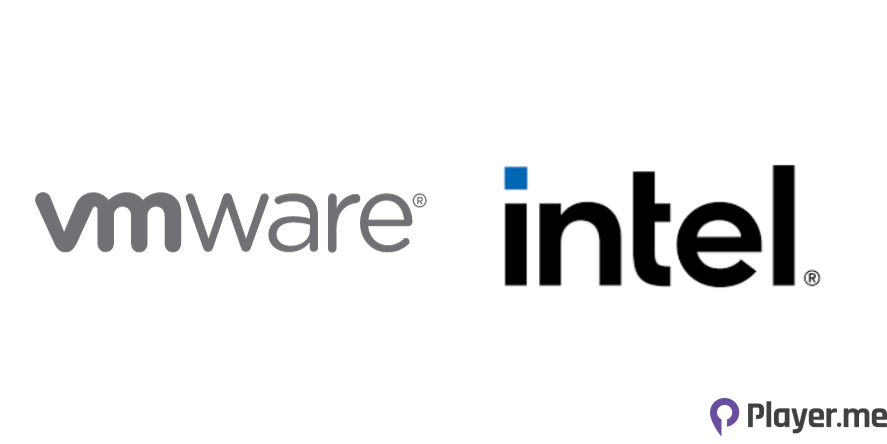On November 7, 2023, VMware, Inc. made a groundbreaking announcement of a strategic collaboration with Intel to propel the adoption of Artificial Intelligence (AI) and usher in an era of Private AI across data centres, public clouds, and edge environments.
This collaboration leverages over two decades of innovation from both companies to deliver a jointly validated AI stack, combining VMware’s Cloud Foundation with Intel’s AI software suite, Intel Xeon Processors, and Intel Max Series GPUs. The result is a transformative solution that promises customers superior privacy, security, performance, scale, and Total Cost of Ownership (TCO).
Also Read: Competition for AI Dominance- Tech Giants, Cloud Leaders, and Semiconductor Companies
Accelerating AI Adoption Through Collaboration
VMware, with its widely deployed Cloud Foundation, and Intel, known for providing open, scalable, and trusted solutions, are joining forces to simplify the building and deployment of AI models. The collaboration aims to provide a seamlessly integrated AI stack, allowing customers to harness the power of AI on their existing general-purpose VMware and Intel infrastructure. This joint effort addresses the growing demand for AI-accelerated computing and models in diverse environments where business transactions take place.
The ubiquity of VMware and Intel products in the enterprise positions this collaboration as a force multiplier, making AI more accessible and fostering the adoption of Private AI — an architectural approach that balances the benefits of AI with practical privacy and compliance needs.
Private AI: Empowering Choice, Privacy, and Control

Chris Wolf, Vice President of VMware AI Labs, emphasises that with Private AI, customers no longer need to compromise on choice, privacy, or control. This approach empowers organisations to accelerate AI adoption while future-proofing their AI infrastructure. The collaboration between VMware and Intel is envisioned to significantly enhance worker productivity, drive transformation across major business functions, and generate a broader economic impact.
Sandra Rivera, Executive Vice President and General Manager of the Data Center and AI Group at Intel, notes that the potential of AI to unlock new possibilities aligns perfectly with the capabilities of Intel and VMware to lead enterprises into this new era of AI, driven by both silicon and software.
Also Read: How Can Crypto Help Secure AI?
Enabling Private AI Everywhere
As a result of this collaboration, VMware Private AI ensures that compute capacity and AI models are available where enterprise data is created, processed, and consumed — whether in public clouds, enterprise data centres, or at the edge. This supports traditional AI/ML workloads as well as generative AI, allowing for fine-tuning of task-specific models and inferencing of large language models at speeds faster than human communication.
The collaboration addresses the challenge of efficiently fine-tuning smaller, state-of-the-art models, making them easier to update and maintain on shared virtual systems. This opens the door for co-locating diverse AI use cases, such as AI-assisted code generation, experiential customer service bases, recommendation systems, and classical machine statistical analytics on the same general-purpose servers running applications.
Related: AI in Healthcare: Revolutionising Diagnosis, Treatment, and Patient Care
Reference Architecture for Private AI Advancement
VMware and Intel are actively designing a reference architecture that combines Intel’s AI software suite, 4th Gen Intel Xeon processors with Intel Advanced Matrix Extensions (Intel AMX), and Data Center GPUs with VMware Cloud Foundation. This reference architecture empowers customers to build and deploy Private AI models on their existing infrastructure, reducing ownership costs and addressing environmental sustainability concerns.

The key components of this reference architecture include:
- 4th Gen Intel Xeon processors with Intel Advanced Matrix Extensions for significant out-of-box performance improvements.
- Intel Max Series GPUs with up to 128 Xe-cores, addressing the most demanding AI workloads.
- Intel’s AI software suite with end-to-end open-source software for running full AI pipeline workflows.
- VMware Cloud Foundation offers enterprise-class infrastructure, operational simplicity, and enhanced security.
More on Intel: Meteor Lake: Upcoming Intel Mobile Processors Features New ‘Tile’ Based Architecture
Driving Efficiency and Security in Private AI
VMware Cloud Foundation’s features, such as vSAN Express Storage Architecture, vSphere Distributed Resources Scheduler, and NSX for micro-segmentation and advanced threat protection, contribute to the efficiency and security of Private AI. These capabilities ensure optimal performance, minimal overhead, and enhanced security for AI/ML tuning and inferencing workloads.
The collaboration also emphasises the importance of data and model confidentiality through features like secure boot and Virtual TPM, ensuring that Private AI models adhere to stringent security standards.
A Collaborative Ecosystem Supporting Private AI
The support for VMware Private AI extends to leading server providers, including Dell Technologies, Hewlett Packard Enterprise, and Lenovo. Servers running 4th Gen Xeon CPUs with Intel Advanced Matrix Extensions and Intel Max Series GPUs will provide the backbone for Private AI advancements, offering customers a robust and scalable infrastructure.
The collaboration between VMware and Intel represents a significant leap forward in making AI accessible, efficient, and secure for businesses globally. The focus on Private AI aligns with the increasing need for organisations to balance the benefits of AI with privacy and compliance considerations. Through an innovative reference architecture, VMware and Intel empower customers to harness the full potential of AI, driving advancements in science, business, and consumer services while ensuring superior privacy, security, performance, scale, and cost-effectiveness.
More on Player.me: Privacy and Data Protection: Preserving Confidentiality in a Digital World
Author Profile
Latest entries
 GAMING2024.06.12Top 4 Female Tekken 8 Fighters to Obliterate Your Opponents in Style!
GAMING2024.06.12Top 4 Female Tekken 8 Fighters to Obliterate Your Opponents in Style! NEWS2024.03.18Elon Musk’s SpaceX Ventures into National Security to Empower Spy Satellite Network for U.S.
NEWS2024.03.18Elon Musk’s SpaceX Ventures into National Security to Empower Spy Satellite Network for U.S. GAMING2024.03.17PS Plus: 7 New Games for March and Beyond
GAMING2024.03.17PS Plus: 7 New Games for March and Beyond GAMING2024.03.17Last Epoch Necromancer Builds: All You Need To Know About It
GAMING2024.03.17Last Epoch Necromancer Builds: All You Need To Know About It





